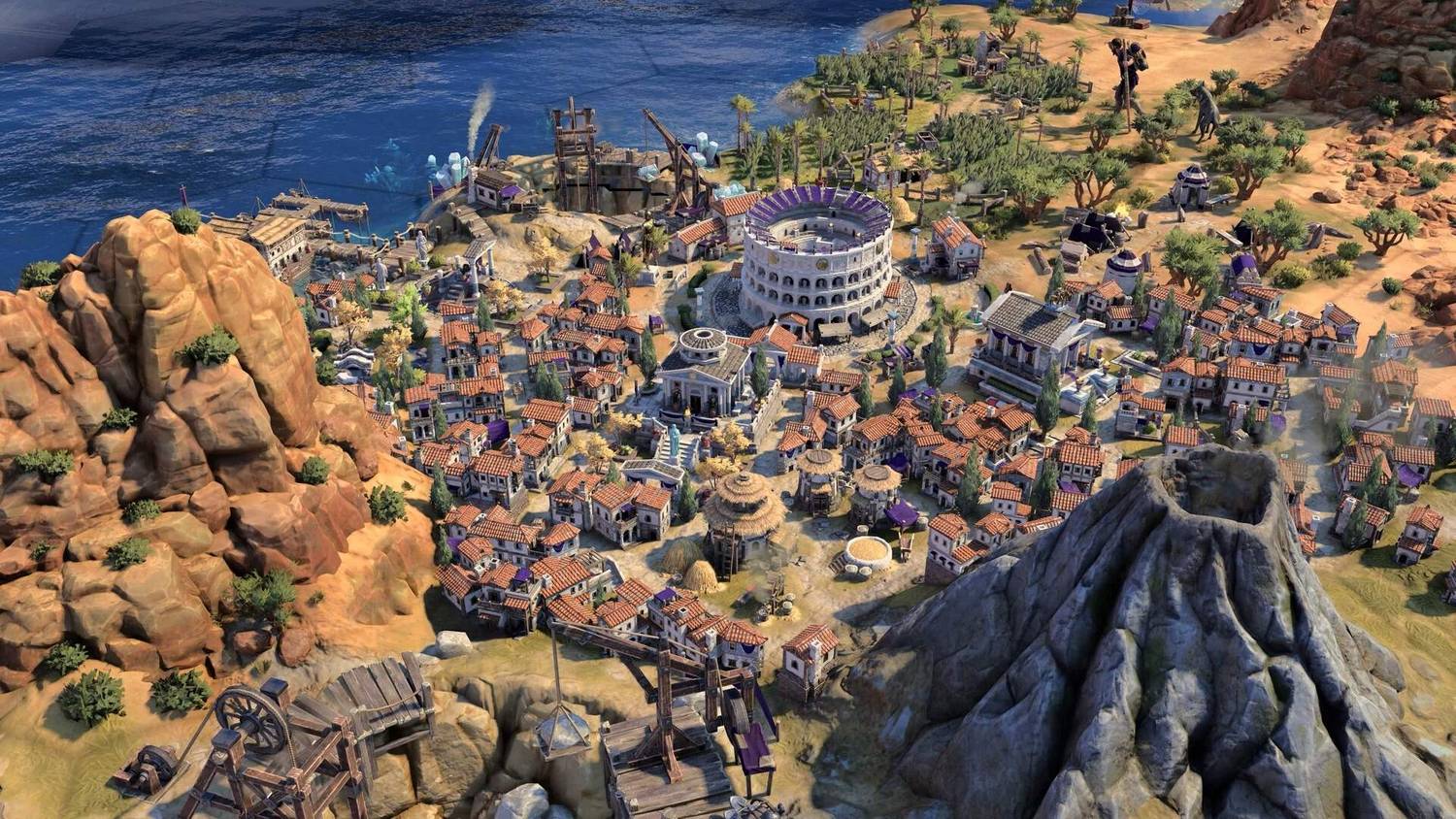A Troubling Paradox: Firaxis Lays Off Staff Despite ‘Civilization 7’ Sales Meeting Expectations
Popular Now
 Roblox
Roblox
 Poppy Playtime
Poppy Playtime
 Stumble Guys
Stumble Guys
 Sonic the Hedgehog™ Classic
Sonic the Hedgehog™ Classic
 Geometry Dash
Geometry Dash
 Fall Guys
Fall Guys
 Valorant
Valorant
 EA SPORT FC 25
EA SPORT FC 25
 Genshin Impact
Genshin Impact
 PUBG Mobile
PUBG Mobile  In a move that has left the gaming industry and its dedicated fanbase in a state of confusion, Firaxis Games, the venerable developer behind the Civilization series, has laid off an undisclosed number of employees. This news comes just weeks after parent company Take-Two Interactive and publisher 2K insisted that sales for the recently-launched Civilization 7 were “in line with expectations.” The paradoxical situation, where a game is deemed commercially successful yet its creators face job cuts, highlights a worrying trend in the modern games industry where revenue and profit are prioritized over the human cost of development.
In a move that has left the gaming industry and its dedicated fanbase in a state of confusion, Firaxis Games, the venerable developer behind the Civilization series, has laid off an undisclosed number of employees. This news comes just weeks after parent company Take-Two Interactive and publisher 2K insisted that sales for the recently-launched Civilization 7 were “in line with expectations.” The paradoxical situation, where a game is deemed commercially successful yet its creators face job cuts, highlights a worrying trend in the modern games industry where revenue and profit are prioritized over the human cost of development.
The layoffs, which were confirmed by a 2K spokesperson, are reportedly part of a studio “restructuring” and “optimization” plan. However, the timing is particularly jarring. While Civilization 7 had a rough launch with a “Mixed” reception on Steam, due to criticism of its user interface and a perceived lack of features, it has steadily improved with multiple post-launch updates. Furthermore, Take-Two CEO Strauss Zelnick recently stated that despite a “slow start,” he feels “good about the title’s trajectory” and that its “lifetime value projections remain consistent with [the company’s] expectations.” This disconnect between the publisher’s confidence in the game and the dismissal of its developers has become a major point of contention within the community.
 The Numbers Don’t Add Up: A New Normal for the Industry?
The Numbers Don’t Add Up: A New Normal for the Industry?
The situation at Firaxis is not an isolated incident but part of a larger, more troubling pattern in the gaming industry. It has become increasingly common for successful studios to lay off employees shortly after a major game launch. The company’s official statement, which mentions optimizing the development process for “adaptability, collaboration, and creativity,” has been widely criticized by developers and fans as corporate jargon that masks the true nature of the layoffs—a simple desire to cut costs.
- The Paradox of Success: The layoffs at Firaxis, a studio that just released a major title in a historically successful franchise, are a clear indication of a shifting business model. It suggests that even if a game is projected to be profitable over its lifetime, the immediate need to cut costs and appease investors takes precedence over retaining the talent that created the product.
- The Human Cost: The cuts have affected employees across various departments, including production, narrative, and art. The news was initially shared by now-former employees on social media, with many expressing shock and sadness at being let go. This puts a human face on the corporate decisions and highlights the emotional and financial toll that these kinds of restructurings can take on a developer’s career and personal life.
- A Long-Term Impact on Quality: While the publisher may claim that the layoffs will not impact the game’s future support, many in the community are skeptical. The dismissal of experienced developers, especially those who worked on the narrative and art of Civilization 7, raises concerns about the quality of future updates and planned DLC. The long-term health of a game is often tied to the morale and stability of its development team, and this kind of move can severely damage both.
The situation at Firaxis is a stark reminder of the current state of the video game industry. It’s a world where a game can be both a critical disappointment and a commercial success, and where the people who create these games are often the first to be let go. The fact that Firaxis, a studio with a long and storied history of creating beloved titles, is not immune to these corporate trends is a worrying sign for the future of game development. For fans, it’s a sobering moment that puts the company’s “consistent with expectations” statement into a new and much darker context. The future of Civilization 7 is now tied not only to its content updates but also to the stability of the team that remains to create them.






 The Numbers Don’t Add Up: A New Normal for the Industry?
The Numbers Don’t Add Up: A New Normal for the Industry?